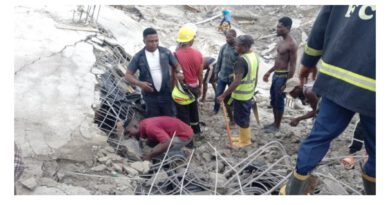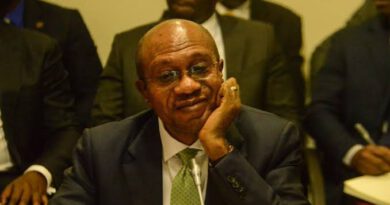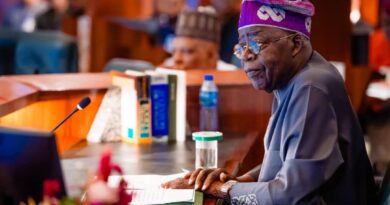Maritime Sector, Blue Economy: Sen. Eshinlokun, Dr. Nweke Advocate Infrastructure and Policy Reforms to Unlock Nigeria’s Potential
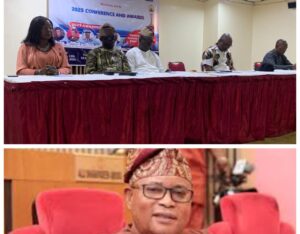
By Raheem Ibrahim
The Chairman of the Senate Committee on Marine Transport, Senator Wasiu Eshilokun Sanni, has emphasised the need for deliberate infrastructure development, strategic planning, and sustainable practices to unlock Nigeria’s vast maritime potential and boost export trade.
Delivering a paper at the 2025 Association of Maritime Journalists of Nigeria (AMJON) Conference and Awards, Sen. Eshinlokun highlighted the importance of modernising existing ports and developing new deep-sea ports capable of handling higher cargo volumes.
The senator stressed the need to improve multimodal transport links and adopt digital technologies to enhance efficiency and competitiveness in the maritime sector.
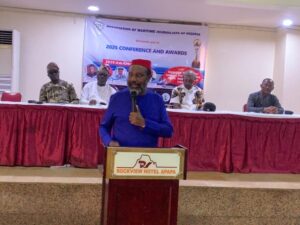
According to him, the establishment of the Ministry of Marine and Blue Economy represents a significant milestone in Nigeria’s maritime development. However, he noted that this progress must be supported by a comprehensive national policy, strong institutional capacity, and strengthened collaboration between public and private stakeholders.
He called for the development of a clear national blue economy policy aligned with the African Union’s Agenda 2063 and the United Nations Sustainable Development Goals (SDGs).
Senator Eshinlokun also advocated investments in dredging and upgrading inland waterways, improving road and rail access to ports, and deploying digital tools such as the International Cargo Tracking Note (ICTN) to enhance visibility, security, and cargo movement efficiency.
He emphasised the importance of public-private partnerships (PPPs) in attracting investments, driving innovation, and introducing modern technologies across the maritime value chain.
The senator further underscored the importance of sustainability and environmental protection in the development of the blue economy. He noted that safeguarding marine biodiversity and maintaining environmental balance are essential for long-term prosperity.
Sen. Eshinlokun also commended AMJON for its continued advocacy and contributions to maritime sector development, describing the 2025 conference as timely in advancing discussions around Nigeria’s blue economy potential.
Similarly, the Head of Research at the Sea Empowerment and Research Centre (SEREC), Dr. Eugene Nweke, stressed the need for stronger collaboration, modernisation, and policy consistency to unlock Nigeria’s vast blue economy opportunities and reposition the maritime sector as a major driver of economic diversification.
Presenting his paper at the AMJON annual conference, Nweke noted that the maritime industry holds enormous potential for job creation, industrial growth, and export expansion but remains underutilised due to infrastructural and policy gaps.
He stated that Nigeria’s maritime assets—comprising an 853 km coastline, 3,000 km of inland waterways, and a 200-nautical-mile Exclusive Economic Zone—remain largely underexploited, contributing less than 1.5% to regional maritime GDP.
Nweke emphasised that public-private collaboration is vital for achieving measurable outcomes. He proposed the establishment of a National Blue Economy Council (NBEC) and a Public-Private Blue Economy Implementation Roundtable (PBBIR) to monitor investments, compliance, and job creation.
He identified key blue economy sectors—such as fisheries, shipping and logistics, coastal tourism, marine energy, and research governance—which could generate billions of dollars annually and create thousands of jobs.
Nweke highlighted significant job creation opportunities in aquaculture, cold-chain logistics, and processing, estimating that port automation and multimodal transport integration could save Nigeria up to ₦3 trillion annually in trade costs.
He also stressed the importance of digital infrastructure, stating that the National Single Window (NSW) platform and the International Cargo Tracking Note (ICTN) are critical enablers of trade transparency, revenue assurance, and investor confidence.
Furthermore, Nweke recommended the revival of the Ajaokuta Steel Mill to produce marine-grade steel for shipbuilding, port infrastructure, and rail fabrication—an initiative he said would strengthen Nigeria’s industrial base and reduce import dependence.

